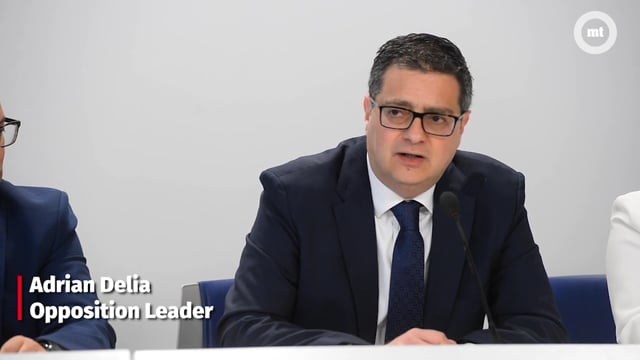[WATCH] Gozo needs a council, PN will vote against a regional authority - Delia
Nationalist Party leader Adrian Delia said the government had reneged on its electoral promises and abandoned Gozo


The Nationalist Party will be voting against a proposed law to introduce an authoritative board for Gozo, Adrian Delia said.
The Opposition leader insisted on Tuesday afternoon that Gozo needed a regional council, and not merely an authority.
The bill on the creation of a Gozo Regional Authority - which had been tabled in Parliament in December - is being discussed in Parliament this evening.
“In principal, we will insist on Gozo having a council, and this should be entrenched in the Constitution,” he said.
“The government is relegating Gozo to second class region. Instead of a regional council, Gozo will now have a board with no executive powers.”
He stressed that since Labour was elected into government, Gozo had seen no infrastructural improvements and had been abandoned. “The millions invested in roads will not affect Gozo," he said.
Delia said that the proposed new authority would be weak and spineless, and would act as a scapegoat to take the blame for government failures in Gozo.
"The PN wants a regional council for Gozo, or an entity elected by Gozitans themselves. Instead, the government is proposing that the Gozo Minister [Justyne Caruana] chooses the boards members,” Delia noted.
"This authority is a trick and there will be no devolution of powers whatsoever.”.
Discussion on parliamentary quotas still to take place
On the matter of parliamentary quotas, including the setting of minimum quotas for female representation, Delia said the party wanted to wait for a bill on the matter to be tabled in Parliament before discussing the issue, so that more details could emerge on how the system is proposed to work.
“We agree that female representation in Parliament needs increase. The methodology of how this will be done has yet to be seen,” he said.
“We believe that women are intrinsically capable…The most important thing is to determine if all the necessary measures to attract more women into politics are in place. All barriers for women to enter the political fray have to be removed.”

.png)




















